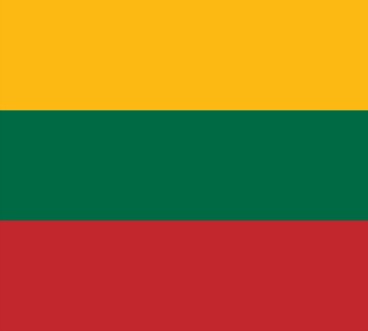This report is based on the findings of a Helsinki Commission staff delegation to Vilnius, Lithuania, from February 21 through February 26, 1990 to observe the political processes taking shape around the February 24 elections to the Lithuanian Supreme Soviet. The delegation interview representatives of the Communist Party, the Lithuanian Reform Movement Sajudis, the Lithuanian Democratic, Christian Democratic, Social Democratic and Green Parties, Yedinstvo, the Union of Poles in Lithuania, and various other organizations and minority groups. Officials from district and republic-level electoral commissions, as well as candidates, their supporters, and the voters at the polls, were also interviewed.

Chairman Wilson and Ranking Member Cohen Condemn Rus...
Dec 05, 2024WASHINGTON—Today, U.S. Helsinki Commission Chairman Representative Joe Wilson (SC-02) and Ranking Member Representative Steve Cohen (TN-09) issued the following statement condemning Russia’s malign interference in the Romanian presidential election, the second round of which is scheduled […]

Helsinki Commission Advances Human Rights, Demands f...
Oct 19, 2023By Shannon Simrell, Senior Policy Advisor Between October 2-13, 11 Helsinki Commission staff joined approximately 1,400 representatives of OSCE participating States (pS) and civil society representatives in Warsaw, Poland in […]
Helsinki Commission Deeply Concerned Over Latest Ele...
Jul 27, 2022WASHINGTON—Helsinki Commission Chairman Sen. Ben Cardin (MD) and Co-Chairman Rep. Steve Cohen (TN-09) today expressed deep concern about an effort by the international community’s High Representative in Bosnia to impose […]
Co-Chairman Cohen Welcomes Conclusion of First Round...
Apr 12, 2022WASHINGTON—Following the first round of presidential elections in France on April 10, Helsinki Commission Co-Chairman Rep. Steve Cohen (TN-09) issued the following statement: “As co-chairman of the bipartisan U.S. Helsinki […]
Helsinki Commission Supports Invocation of OSCE’s Vi...
Nov 10, 2021WASHINGTON—Following the invocation of the OSCE’s Vienna Mechanism to address the mounting human rights crisis in Belarus, Helsinki Commission Chairman Sen. Ben Cardin (MD), Co-Chairman Rep. Steve Cohen (TN-09), Ranking […]
The Russian election was supposed to shore up Putin’...
Sep 25, 2021Electoral precinct 40, located in a charming historic area a few minutes’ walking distance from the Kremlin, is among the few in Moscow that can be trusted to count votes […]
Seeking Justice and Freedom in Belarus
Sep 21, 2021In 2020, mass protests against the fraudulent election of Alexander Lukashenko shook Belarus. Since then, Lukashenko and his illegitimate regime have clung to power by committing ever more serious acts […]
Helsinki Commission Leaders Blast So-Called Election...
Sep 21, 2021WASHINGTON—Following the sham State Duma elections in Russia, Helsinki Commission Chairman Sen. Ben Cardin (MD), Co-Chairman Rep. Steve Cohen (TN-09), and Ranking Members Sen. Roger Wicker (MS) and Rep. Joe […]
Repression in Belarus Focus of Upcoming Helsinki Com...
Sep 16, 2021WASHINGTON—The Commission on Security and Cooperation in Europe, also known as the Helsinki Commission, today announced the following hearing: SEEKING JUSTICE AND FREEDOM IN BELARUS Tuesday, September 21, 2021 2:30 […]
Chairman Cardin Joins Bipartisan Resolution Highligh...
Aug 09, 2021WASHINGTON—Helsinki Commission Chairman Sen. Ben Cardin (MD) today joined a bipartisan group of lawmakers to introduce a resolution on the one-year anniversary of the fraudulent presidential election in Belarus through […]
Cardin and Wicker Discuss July 2021 Congressional De...
Jul 21, 2021Mr. CARDIN. Madam President, I take this time to talk about the work of the U.S. Helsinki Commission in a recent opportunity we had to participate in the OSCE Parliamentary […]



